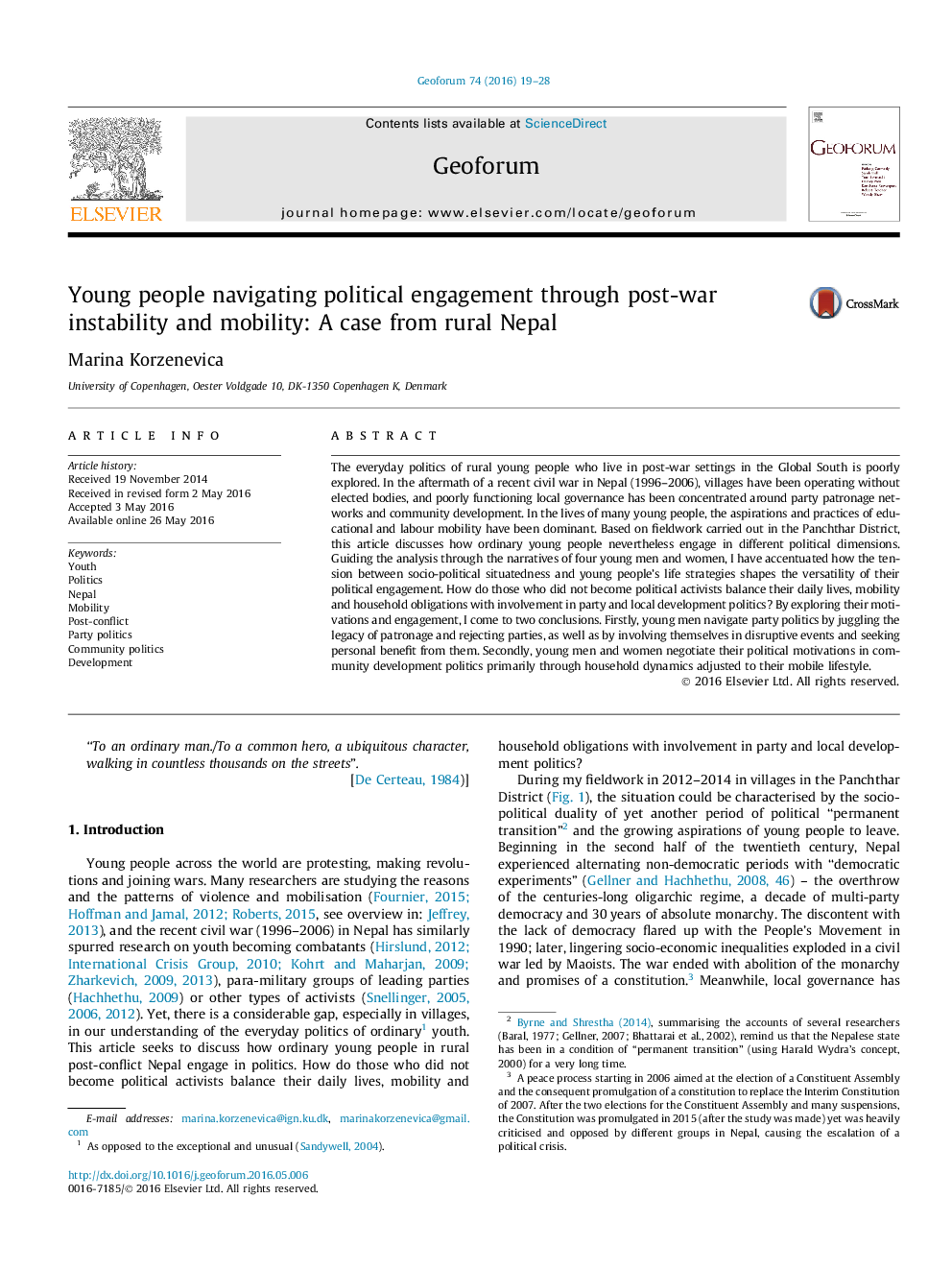| کد مقاله | کد نشریه | سال انتشار | مقاله انگلیسی | نسخه تمام متن |
|---|---|---|---|---|
| 5073439 | 1477115 | 2016 | 10 صفحه PDF | دانلود رایگان |
- Everyday politics in Nepal is affected by political instability and mobility.
- Rural youth, unlike urban youth, are unable to distance themselves from politics.
- Socio-political situatedness has spurred alternative political (dis)engagement.
- Young men navigate through patronage politics despite rejecting it.
- Young people engage in community politics through the household.
The everyday politics of rural young people who live in post-war settings in the Global South is poorly explored. In the aftermath of a recent civil war in Nepal (1996-2006), villages have been operating without elected bodies, and poorly functioning local governance has been concentrated around party patronage networks and community development. In the lives of many young people, the aspirations and practices of educational and labour mobility have been dominant. Based on fieldwork carried out in the Panchthar District, this article discusses how ordinary young people nevertheless engage in different political dimensions. Guiding the analysis through the narratives of four young men and women, I have accentuated how the tension between socio-political situatedness and young people's life strategies shapes the versatility of their political engagement. How do those who did not become political activists balance their daily lives, mobility and household obligations with involvement in party and local development politics? By exploring their motivations and engagement, I come to two conclusions. Firstly, young men navigate party politics by juggling the legacy of patronage and rejecting parties, as well as by involving themselves in disruptive events and seeking personal benefit from them. Secondly, young men and women negotiate their political motivations in community development politics primarily through household dynamics adjusted to their mobile lifestyle.
Journal: Geoforum - Volume 74, August 2016, Pages 19-28
